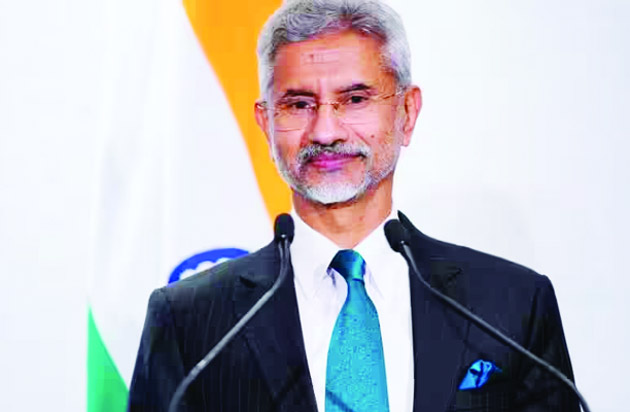Sushil Kutty
The Nijjar killing is now a row. After India’s External Affairs Minister S. Jaishankar called out Canada’s hypocrisy and the United States’ double standards, Canada sought to balance with “We cannot bend rules” for anybody. This at the United Nations General Assembly. India’s External Affairs Minister S Jaishankar got to speak first and he spoke his mind on the June 18 killing of Khalistani terrorist Hardeep Singh Nijjar in British Columbia, Canada, which Canadian Prime Minister Justin Trudeau alleged was an Indian assassination.
Trudeau was shooting his mouth off. To date he has no evidence to back his wild claim. Despite years in office and having learned the trade of dealing with nations from his late father, who was Prime Minister of Canada for more than a decade, Justin Trudeau has no inkling of the basic tenets of diplomacy and international etiquette.
In his address, Jaishankar said it was not right for countries to “countenance that political convenience determines responses to terrorism, extremism and violence”, which was what Trudeau was hell bent on doing after being told to cease and desist. Prime Minister Justin Trudeau is a stickler to his own obstinate point of view, doesn’t matter whether he is right or wrong. At least in this matter of Nijjar, Justin is completely off the straight and narrow. In his reply at the UNGA, the Canadian ambassador to the United Nations said “We cannot bend rules.” Well, okay, but Canada cannot make its own rules either, different from those of the rules-based world order. And who are the “Five Eyes” to investigate, snoop and come up with conclusions that suited the Canadian narrative?
Robert Rae, Canada’s UN ambassador, shouldn’t just up and parrot Trudeau’s line. If Rae is a seasoned diplomat, he should know that Trudeau is anything but that. Rae’s “we cannot bend the rules of state-to-state relations for political expediency” sounded like a copycat response rather than anything cerebral or original. It seems like the Trudeau affliction is contagious and has now passed on to the entire diplomatic corps of the Canadian Foreign Service.
It is not that Indian and Canadian diplomats haven’t been talking or were unaware of the flare-up. It is common knowledge that Khalistani terror elements have been holding out death threats to Indian diplomats in Canada and there have been a number of attacks on Indian government assets in that country, including human resources. Canadian diplomats haven’t been behaving like they cared. Apparently, for Trudeau and for his diplomats, “Khalistan” qualified for sovereign country and not India, with which Canada has had diplomatic relations for a long time.
Also, it is not as if India and Canada do not have legitimate talking points on issues concerning both countries including trade and the Khalistani plague holding both India and Canada to ransom. As rightly pointed out by India’s EAM, Trudeau was more interested in the “political expediency” that the likes of Hardeep Singh Nijjar brought with them. Calling Nijjar “Sikh separatist leader” was not because of deep respect but because Sikh MPs stopped the Trudeau government from taking a big fall, worse than even Humpty-Dumpty’s.
Indeed, the “countenance that political convenience determines responses to terrorism, extremism and violence” is a proven fact. Prime Minister Justin Trudeau’s claim that India was involved in Nijjar’s killing was for his “political convenience”. Is Trudeau batting for an independent Sikh homeland? “Such unsubstantiated allegations (Nijjar killing) seek to shift the focus from Khalistani terrorists and extremists, who have been provided shelter in Canada and continue to threaten India’s sovereignty and territorial integrity,” India’s external affairs ministry told Canada.
Nothing. No response. Silence. Canada does not want to clear the air. In fact, Canada doesn’t want trade. Canada does not want Indian students flocking to Canada for higher education. Canada does not want cultural exchanges. Canada only wants Sikhs, and more and more Sikhs entering Canada to give expression to their unbounded “freedom of expression”, which is mostly about the imaginary country of “Khalistan”. Speak up against Khalistan and Prime Minister Justin Trudeau sulks and Canada’s diplomats lose training.
Justin Trudeau just does not have the evidence to back his claim, period. But Canada’s allies back him, led by the United States. And despite talk of China and India and how great a role India plays in the India-Pacific, when it comes to “White World” of the US, UK, Canada, Australia and New Zealand, India doesn’t stand a chance. India has rubbished Trudeau’s claim as “absurd”, but turns out it is US/CIA investigation that “nailed India” and President Joe Biden was like a satisfied Cheshire cat! The double standards that EAM Jaishankar spoke of is solid, thick and unassailable. It is entrenched. The West keeps talking of the new world order, but when the status quo looks set to change, the mask slips. Robert Rae’s rant “the fabric of our open and free societies will start to tear if rules are bent” is so much hogwash.
The one thing Khalistani terrorist Hardeep Singh Nijjar and Canadian Prime Minister Justin Trudeau have in common is ‘notoriety’. Nijjar left his notoriety here when he departed this world. But Trudeau acquired his with inspiration from Nijjar; their links so strong that it is hard to imagine Trudeau without Nijjar’s halo. Justin Trudeau’s embrace of Nijjar’s ideology is like Nijjar living on in Trudeau. (IPA)
Trending Now
E-Paper


